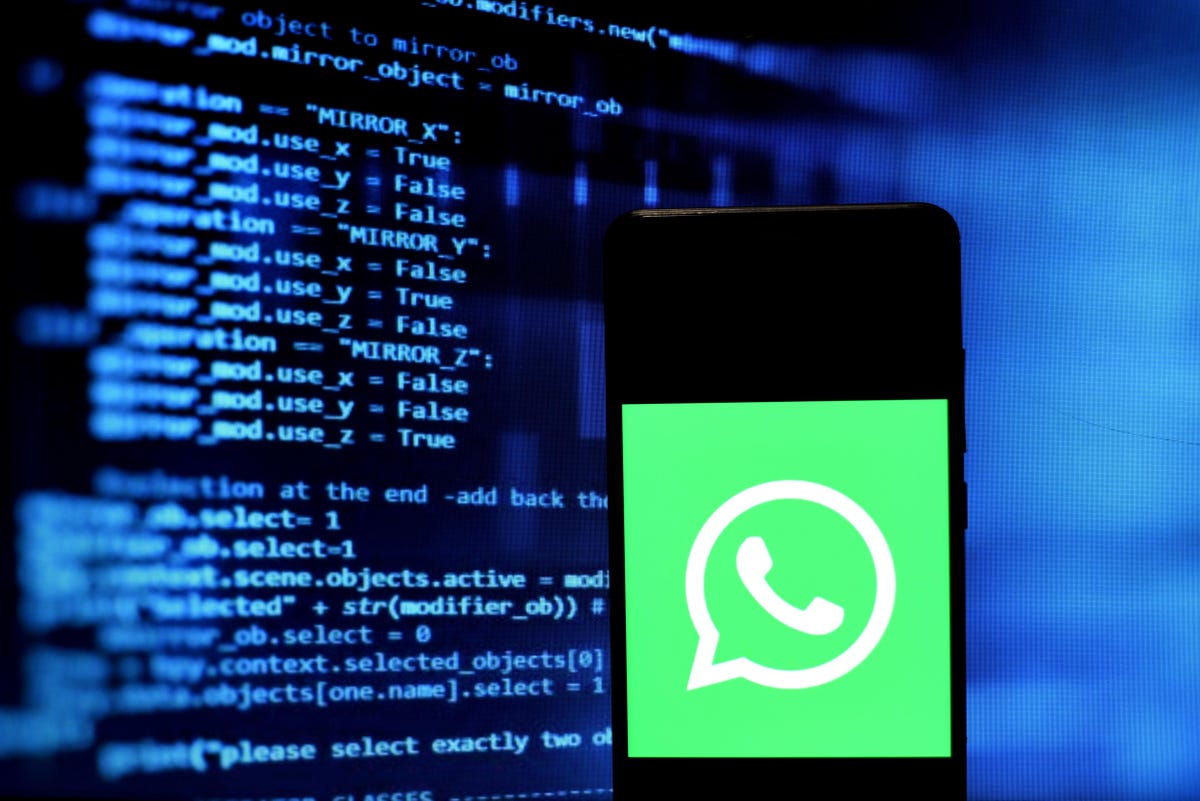There have been many revelations in the case of espionage of journalists, lawyers and human rights activists by making a dent in WhatsApp with Israeli technology. But the whole truth has not been revealed yet.
If the explanation of the Israeli company NSO is true, only the government or government agencies can spy on Pegasus software. Instead of self-explanation, the government has asked WhatsApp to reply within 4 days.
A similar answer was also sought from Facebook in the Cambridge Analytica case. Penalty was also imposed on the company under the European law in the Cambridge case, but in India the CBI is still analyzing the figures and yet to take any action.
It is evident from the papers that this game of burglary has been going on for many years in WhatsApp. So, is there a big strategy behind WhatsApp filing a lawsuit in a California court?
Whatsapp case filed in USA
WhatsApp has filed a lawsuit against the Israeli company NSO and its affiliate company Q Cyber Technologies Ltd in California, USA. Interestingly, Facebook is also a party to this lawsuit along with WhatsApp. Facebook is owned by WhatsApp, but in this case, Facebook has been named as the service provider of WhatsApp, which provides the infrastructure and security shield to WhatsApp.

Only last year, Facebook admitted that the data of WhatsApp and Instagram was being used commercially by its group. Facebook also admitted that its platform does data mining and data business through multiple apps.
Cambridge Analytica was one such company through which attempts were made to influence the democratic process in many countries including India. WhatsApp has always described its platform as secure and voice calls, video calls, chats, group chats, images, videos, voice messages and file transfers in its system as encrypted.
According to a lawsuit filed in a California court, the Israeli company also hacked WhatsApp’s system through a mobile phone. Through the use of this software, a virus enters the smart phone and collects all the information through a missed call. The camera of the phone starts to inform where the person is going, whom is he meeting and what is he talking about?
According to reports, 8 mobile networks of India including Airtel and MTNL were used for this spying. According to the facts recorded in the case, between January 2018 and May 2019, the Israeli company spied the people of many countries including India. According to the lawsuit filed in the US court, WhatsApp has demanded compensation from the Israeli company. The question is, how will those people who have been hacked into their mobile in India get justice?
WhatsApp, Citizen Lab and NSO
The NSO is an Israeli company but its ownership is European. In February this year, Novalpina Capital LLP, a private equity firm in Europe, bought NSO for $ 100 million. According to Business Insider’s Becky Peterson report, the NSO’s profit last year was $ 125 million. When a spy company is making billions, then how much profit will companies like Facebook make by selling data with their affiliates?
According to the NSO, its software is provided to the government or government authorized agencies to fight against child sexual abuse, drugs and terrorists, and the use of their software to spy against human rights activists is wrong. After this the needle of suspicion is now fixed on the Government of India. According to reports, it costs about Rs 4.61 crore and installation cost of Rs 3.55 crore to hack 10 devices.
The question is that through the Israeli software, which government agency would have spent crores in spying many Indians? If this spying has been done unauthorized by central government agencies, then it violated Indian law and Supreme Court guidelines.
If espionage has been carried out by foreign governments or private institutions, then it is a siren of danger for the whole country.
In both the cases, the matter should be investigated by the NIA or other competent agency, giving factual explanations to the government. The Citizen Lab of the University of Toronto, Canada, said in September last year that WhatsApp was being breached through NSO in 45 countries. Details of 17 people have been revealed so far in India, most of which have come to know through Citizen Lab. The question is, there is no mention of Citizen Lab anywhere in the agreement with WhatsApp users. Then why did WhatsApp not immediately and directly contact its Indian customers about this breach?
Strict law on telephone tapping, but what about digital burglary
In India, the traditional communication system is controlled through telegraph law. The Supreme Court had also made a strong legal system regarding telephone tapping, which has been reiterated by the Bombay High Court last week. It is clear from the WhatsApp case that the old laws have become meaningless in the new system of mobile and internet. Despite evidence of spying billions of data on India by companies like Facebook in Operation Prism over the last decade Criminal action was not taken against this.
In the Puttaswamy case in the 9-judge bench of the Supreme Court of India, the right to privacy was considered the right to life under Article 21 of the Constitution. Then how can companies like WhatsApp and Facebook interfere in the personal lives of crores of people and play with their lives? The Supreme Court has ordered the transfer of cases of social media companies to be heard in January 2020. If the government is doing something, then should there not be strict accountability by the Supreme Court to prevent the breach of mobile and digital companies?
Why party politics on the issue of security
Union Minister Ravi Shankar Prasad has tried to make it a party matter, sparking the spying with Pranab Mukherjee and General VK Singh, but it is a matter of privacy and security of the general public.
In Karnataka, the old government of Congress and JDS had spied BJP leaders, which is under investigation. There have been allegations of telephone tapping of judges along with the leaders. After the Supreme Court’s decision, any such espionage is an interference in people’s lives and a violation of their constitutional rights. There are more than 400 million WhatsApp users in India.
Jamal Khashoji, a Washington Post journalist, was murdered at the Saudi Arabian embassy in Istanbul by tracking the phone through Israeli software. Therefore, taking these disclosures seriously, the Central Government should take a transparent and concrete step and put a legal check on espionage.
Whatsapp strategy
Dozens of Israeli companies such as NSO facilitate spying in the digital arena.
Most of the US Internet and digital companies own the Jewish lobby of Israel. Companies like Facebook openly promote the business and espionage of data through multiple apps and data brokers. Then why has WhatsApp filed a case against the NSO and its associate company in US court?
Major changes were made in the IT Act in 2008 to regulate social media companies in India. After which, in the years 2009 and 2011, many regulations were made for many intermediary companies and data security. The old UPA government had to face heavy opposition from social media companies in following those rules.
The dissatisfaction of social media companies turned into political gains by parties like BJP and AAP. The Modi government allowed chaotic expansion of Internet companies in the name of Digital India, but made no efforts to regulate them. The draft rule was released in December 2018 to increase the accountability of intermediary companies, following the ever increasing threat and judicial intervention on national security.
After implementing these rules, companies like WhatsApp will have to set up their offices in India and also appoint a nodal officer. Because of this, these companies have to be legally accountable in India and also have to pay a large amount of tax.
The government, which is claiming to protect the national interest and privacy of the people, is also in collusion with these companies, due to which these rules have not been implemented yet. Last month, the government gave an affidavit in the Supreme Court that by implementing these rules in the next 3 months, the accountability of social media companies will be fixed. Is the WhatsApp company trying to stop government regulation in India, by filing a lawsuit in America and showing fear of burglary?

